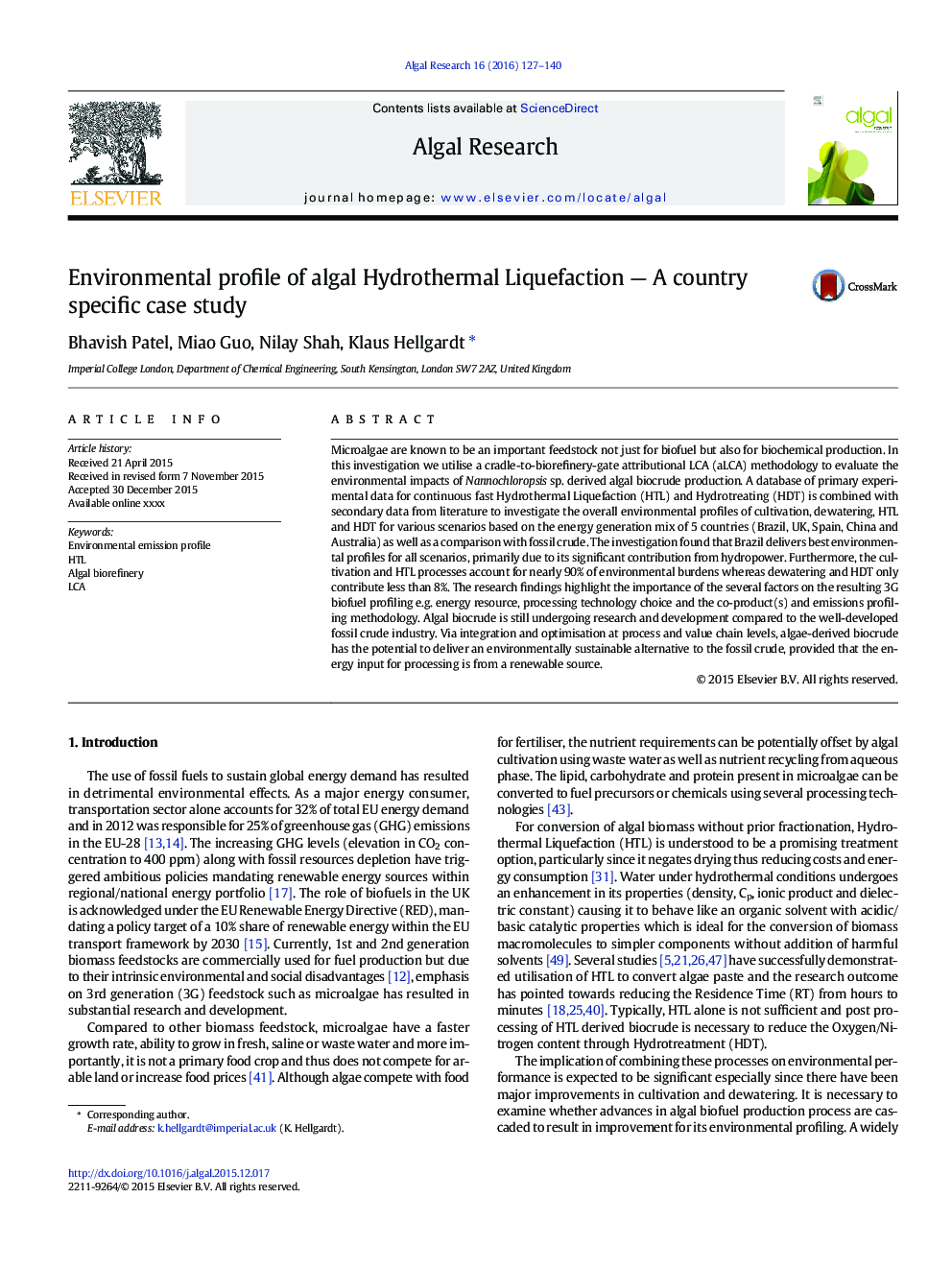| Article ID | Journal | Published Year | Pages | File Type |
|---|---|---|---|---|
| 8087203 | Algal Research | 2016 | 14 Pages |
Abstract
Microalgae are known to be an important feedstock not just for biofuel but also for biochemical production. In this investigation we utilise a cradle-to-biorefinery-gate attributional LCA (aLCA) methodology to evaluate the environmental impacts of Nannochloropsis sp. derived algal biocrude production. A database of primary experimental data for continuous fast Hydrothermal Liquefaction (HTL) and Hydrotreating (HDT) is combined with secondary data from literature to investigate the overall environmental profiles of cultivation, dewatering, HTL and HDT for various scenarios based on the energy generation mix of 5 countries (Brazil, UK, Spain, China and Australia) as well as a comparison with fossil crude. The investigation found that Brazil delivers best environmental profiles for all scenarios, primarily due to its significant contribution from hydropower. Furthermore, the cultivation and HTL processes account for nearly 90% of environmental burdens whereas dewatering and HDT only contribute less than 8%. The research findings highlight the importance of the several factors on the resulting 3G biofuel profiling e.g. energy resource, processing technology choice and the co-product(s) and emissions profiling methodology. Algal biocrude is still undergoing research and development compared to the well-developed fossil crude industry. Via integration and optimisation at process and value chain levels, algae-derived biocrude has the potential to deliver an environmentally sustainable alternative to the fossil crude, provided that the energy input for processing is from a renewable source.
Related Topics
Physical Sciences and Engineering
Energy
Renewable Energy, Sustainability and the Environment
Authors
Bhavish Patel, Miao Guo, Nilay Shah, Klaus Hellgardt,
